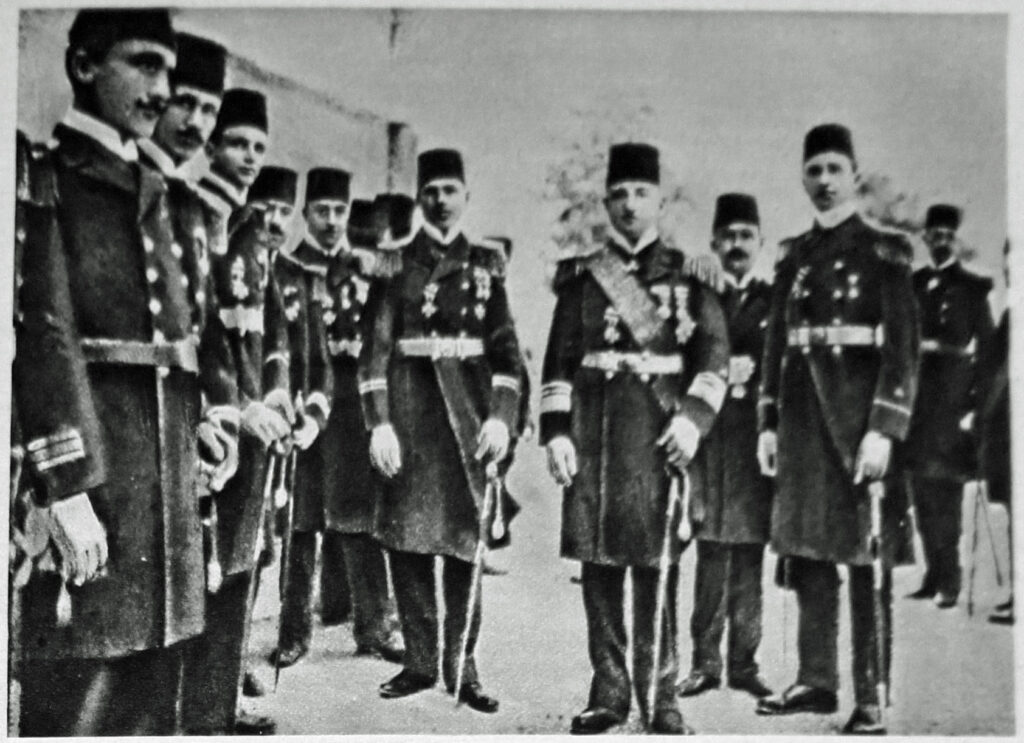A Search For Allies
It all began with the now-infamous Black Sea Raid, which took place the week before on the 29th of October 1914. The attack was conceived by Enver Pasha, the Ottoman War Minister and considerable Germanophile, against the wider wishes of the larger Ottoman government. In the preceding months before the outbreak of war, the Ottomans had searched in vain for a formal alliance with one of the great powers. Pasha proposed a direct alliance with the Germans, through their ambassador Hans Freiherr von Wangenheim, but was immediately rebuked.
However, Kaiser Wilhelm II overturned Wangenheim’s ruling on the condition that the Ottomans ‘undertake action against Russia worthy of its name’. Without the widespread support of his own government, Enver Pasha decided to take matters into his own hands. After covert collaboration with German diplomats and German sailors and admirals – who still manned two recently-bought ships, SMS Goeben and SMS Breslau, later renamed to the Yavuz Sultan Selim and the Midilli respectively – he decided upon a secret strike across the Black Sea’s many Russian ports.
The Black Sea Raid
And so it was: two destroyers, the Muavenet and Gairet, set about Odessa, torpedoing the Russian gunboat Donetz before assaulting several merchant vessels, shore installations, oil tanks and a sugar refinery in a devastating raid. Hours later, the Yavuz began its bombardment of Sebastopol before retreating due to heavy return fire. Meanwhile, Feodosia and Yalta were barraged by the Hamidieh, their granaries obliterated in the process. Then the Berk-i Satvet sent a shore party to warn the civilian population of Novorossiysk before opening fire. She was soon thereafter joined by Midilli, which fired 308 shells, sinking numerous Russian grain cargo ships in the process and destroying approximately 50 oil tanks.
The raid itself was devastating, but its ramifications even more so. Although the Germans were actually disappointed that the attack didn’t go far enough strategically, it would serve as a giant upheaval to the futures of both empires. A two-day political crisis formed the initial aftermath, with great turmoil and consternation among the Ottoman ranks at Enver’s actions. Four officials resigned immediately, while others still sought to draft a formal letter of apology to Russia. Pasha himself was resigned to this outcome, informing the Germans that there was nothing more he could do.
The British Response
Britain, meanwhile, had little knowledge of the situation on the ground and felt that the Ottomans and Germans were conspiring together. As a result, an ultimatum was sent, demanding that they remove the German Admiral Souchon and his German colleagues from within the Ottoman ranks. The Ottomans refused to comply.
Incensed, the-then First Lord of the Admiralty, Winston Churchill, ordered British forces to commence hostilities against the Ottomans. On the 3rd of November, a day after the Russian declaration of war, the Royal Navy began their bombardment of the Dardanelles; two days later, on this day 105 years ago, both Britain and France followed the Russians’ position. Even now there are misconceptions surrounding the events that brought the Ottomans to war, with some even blaming Churchill for getting them involved. The truth, as always, is far murkier. Enver’s wish had been fulfilled, albeit incidentally.
The Fallout of War
Irrespective of the origins, however, the events that transpired thereafter would prove disastrous for the Ottomans. The price they would pay would be an ultimate one: the empire would be dissolved, hundreds of thousands of Ottomans would die, the Islamic Caliphate would be abolished and millions of Armenians would die in one of the 20th centuries’ genocidal bloodbaths. Had Enver Pasha not been so keen on an alliance with Germany, it’s possible that all could’ve been avoided. Such is history.


Recent Comments